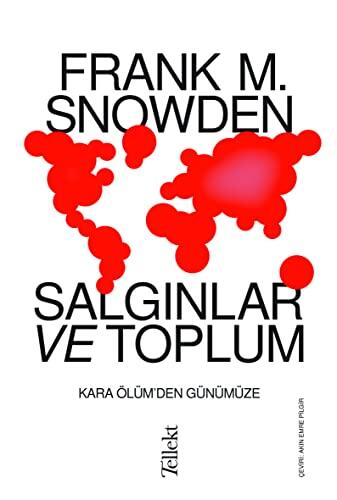
Salgınlar ve Toplum: Kara Ölüm'den Günümüze
لا توجد تقييمات بعد
تنسيق
غلاف ورقي
صفحات
752
لغة
التركية
منشور
Apr 20, 2021
الناشر
Tellekt
الطبعة
1
رقم ISBN-10
6257118158
رقم ISBN-13
9786257118156
الوصف
Frank M. Snowden delves into the intricate relationship between pandemics and human society, weaving together historical accounts that span from the Black Death to contemporary health crises. He explores how each outbreak has not only posed a direct threat to public health but has also reshaped social structures, economies, and cultural norms.
The narrative takes the reader through various time periods, illustrating how societies responded to the fear and uncertainty brought by infectious diseases. Snowden highlights the resilience and adaptability of communities, as well as the stigmas and prejudices that often arise during times of crisis. The interplay between medicine and public policy emerges as a central theme, illuminating the challenges faced by leaders in protecting their populations.
Through a comprehensive examination of past pandemics, the text prompts readers to reflect on the lessons learned and the implications for future health emergencies. The discourse invites a deeper understanding of how collective experiences of illness can unite or divide societies.
Snowden emphasizes the importance of historical awareness in shaping future responses to epidemics, urging readers to consider the socio-political dimensions of health crises. This exploration not only sheds light on historical patterns but also raises critical questions about humanity's preparedness for the inevitable challenges that lie ahead.
The narrative takes the reader through various time periods, illustrating how societies responded to the fear and uncertainty brought by infectious diseases. Snowden highlights the resilience and adaptability of communities, as well as the stigmas and prejudices that often arise during times of crisis. The interplay between medicine and public policy emerges as a central theme, illuminating the challenges faced by leaders in protecting their populations.
Through a comprehensive examination of past pandemics, the text prompts readers to reflect on the lessons learned and the implications for future health emergencies. The discourse invites a deeper understanding of how collective experiences of illness can unite or divide societies.
Snowden emphasizes the importance of historical awareness in shaping future responses to epidemics, urging readers to consider the socio-political dimensions of health crises. This exploration not only sheds light on historical patterns but also raises critical questions about humanity's preparedness for the inevitable challenges that lie ahead.